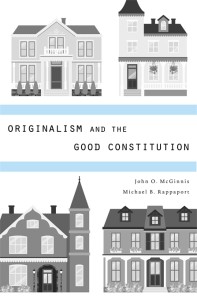Judges often preside over cases with ties to families’ interests, new investigation finds
Ethics
Judges often preside over cases with ties to families’ interests, new investigation finds
(Image from Shutterstock.)
Many judges do not disclose when cases intersect with the financial interests of their families or recuse themselves from those cases, according to an investigation released by ProPublica.
ProPublica, a non-profit investigative newsroom, partnered with student journalists at Boston University to examine more than 1,200 federal judges and state supreme court justices. According to ProPublica, the resulting analysis discovered “loose rules, inconsistent enforcement and creative interpretations of guidelines routinely allow judges to withhold potential conflicts from the parties before them” in both state and federal courts.
“We found dozens of judges presiding over cases where their family members appeared to have financial connections to the outcomes,” ProPublica reporter Noah Pransky told ABC News. “The cases we highlighted are just some examples exposing a broken system of self-policing and little accountability.”
In one example ProPublica highlights, Judge Wendy Vitter in the Eastern District of Louisiana presided over two jury trials involving paramedics who sued Plaquemines Parish for unpaid overtime. According to ProPublica, Vitter’s husband, David Vitter, a former U.S. senator, was paid to lobby on behalf of Plaquemines Port Harbor and Terminal District.
Pransky told ABC News this was never shared with parties in the case.
Vitter told ProPublica she relied on guidance from the Judicial Conference Committee on Codes of Conduct, which says recusal may not be necessary in situations where a spouse’s client is not a party in a case.
The ABA Journal was unable to reach Vitter for comment.
According to the ABA Model Code of Judicial Conduct, a judge should disclose any information that parties or their counsel might reasonably consider relevant to a motion for a recusal—even if that judge believes there is no basis for a recusal. However, ProPublica reports, this guidance has not been codified by all states or the federal judiciary.
While federal laws require judges to report their spouses’ annual assets and income, they do not generally require judges to disclose their spouses’ clients, ProPublica also reports.
See also:
Supreme Court justices should follow binding code of ethics, ABA House says
ABA task force recommends ethics and transparency changes for Supreme Court






